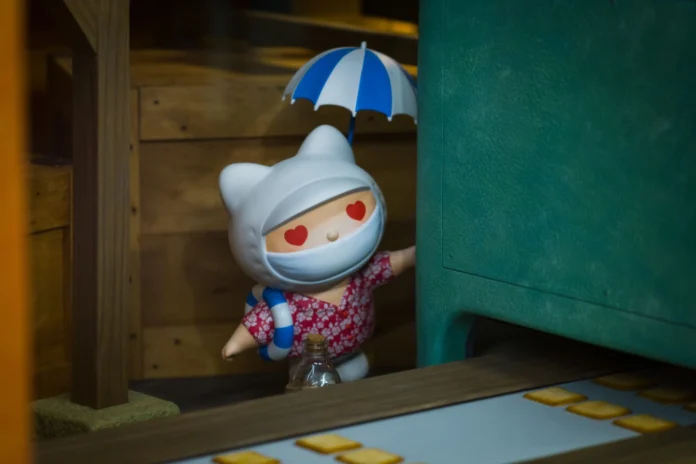Placeholder while article actions load
Tourists are coming back to Japan — but while in the past they were driving Mario Karts down the main streets of Tokyo, now they’re being asked to sit in groups distanced from locals at restaurants, and keep masks on while eating.
For those eager to get back into Japan, the country’s first step toward reopening to tourists in the form of chaperoned tour groups that began Friday has been met with much derision. Social media users have compared the move to the guided tours of North Korea.
But relax: This isn’t the future of tourism in what is often ranked as the place people most want to visit. For a nation that was already quite skeptical about the merits of tourism before Covid, a measured reopening is the right approach.
Japan’s success in handling the pandemic has engendered caution among both policy makers and the public — understandable when it has seen as few deaths per capita as pandemic hero New Zealand, without resorting to lockdowns. Some might think Tokyo a laggard, still living in the pandemic era while other countries with looser policies have defeated Covid: If that’s true, it’s only been through massive sacrifice that elderly Japan will not countenance.
Tokyo is skeptical that foreign tourists will follow the informal social behaviors, such as near-ubiquitous masking, that its experts believe have kept deaths low. Some of the suspicion of outsiders is a hangover from the media frenzy last year over the prospect of people entering the country for the Olympics. The domestic media’s role here should not be overlooked: If Japan adopted a “let it rip” approach to the borders, the pressure would undoubtedly be intense, and the potential blowback more damaging to tourism in the long term. Every visitor that led to a cluster would make the news; a single infection on a test group earlier this month earned national headlines.
Indeed, many in Japan also see an opportunity to review the country’s relationship with tourism, which came upon the country suddenly and wasn’t always entirely welcomed. Tokyoites had long since tired of those Mario Kart cars, and the streets are now better without them (a crowdfunding campaign for one operator during the pandemic spectacularly failed to garner any support, with just four people contributing.)
In the tourist mecca of Kyoto, many are relieved that temples and streets are no longer thronged with foreigners. The local newspaper recently called on the city not to return to the overtourism of the past, and develop a new style that also works for locals.
Understandably, most people aren’t desperate enough to go to Japan that they’ll join a guided tour. The country’s domestic and international business community united on Friday in urging the government to open further, including “rapidly resuming” individual tourist travel and bringing Japan’s entry procedures in line with other G-7 nations.
With Japan’s largest business lobby among those backing the petition, Prime Minister Fumio Kishida has a tightrope to walk. The demands are understandable, but failure to be sufficiently cautious over the pandemic took down his predecessor Yoshihide Suga, who never recovered from suggestions that a domestic tourism subsidy caused the resurgence of the virus.
Kishida has already suggested that Japan will further relax its borders — in stages. It’s incumbent on him to show the way. But before servicing international travelers, Japan must convince the public to be a little less cautious themselves: Activity in Tokyo’s night-time entertainment districts is still down almost 40% from 2019, according to one estimate. Fans at sporting events, such as a recent soccer game against the Brazil national team, are still told to clap silently and avoid cheering.
Kishida should first boost domestic tourism — a restart of the “Go To Travel” campaign is long overdue — and radically ease business travel. With Covid cases stable, seniors mostly boosted and fourth shots already underway, now’s the time to start shifting the public attitude.
That will make the country more accepting of international tourists. It’s generally considered proper travel etiquette to follow the customs of the place you’re going to rather than where you came from. That, for now, means caution. Japan and its wonders will still be here when the borders reopen; just don’t expect the Mario Karts to be.
More From Bloomberg Opinion:
• Japan’s Covid Isolation Has Gone on Too Long: Gearoid Reidy
• Farewell, Chinese Tourist; We’ll Miss Each Other: Adam Minter
• Travel Defies Inflation’s Spending Squeeze: Sutherland & Felsted
This column does not necessarily reflect the opinion of the editorial board or Bloomberg LP and its owners.
Gearoid Reidy is a Bloomberg News senior editor covering Japan. He previously led the breaking news team in North Asia and was the Tokyo deputy bureau chief.
More stories like this are available on bloomberg.com/opinion










